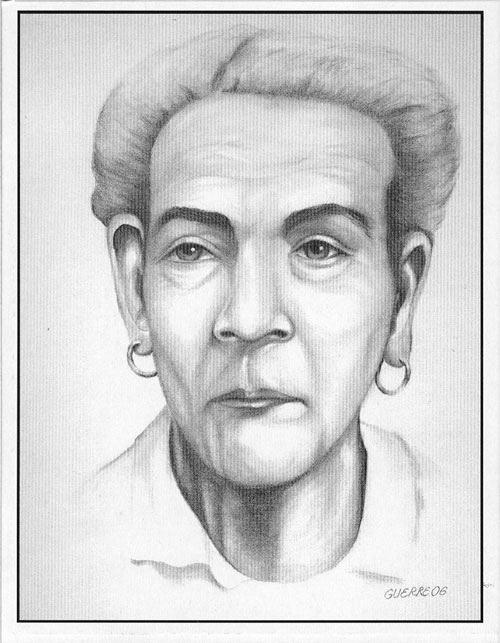
Mariana Grajales Cuello, a mestizo woman, almost illiterate, mother of 14 children, rightly considered by Cubans as the Mother of the Nation, was born on July 12, 1815, in Santiago de Cuba and knew how to rise above her time, educate a troop of heroes and be an example of decorum, courage and greatness.
«What was in that woman, what epic and mystery was there in that humble woman, what sanctity and anointing was there in her mother's womb, what decorum and greatness was there in her simple life that when it is written about her it is as if from the root of the soul, with the softness of a son, and as of endearing affection?” This is how the Apostle of the independence of Cuba, José Martí, wondered about Mariana in the Patria newspaper in the preparations for the Necessary War.
From her parents José Grajales and Teresa Cuello, of Dominican descent, she learned the values and moral principles that she would later transmit to her children and, as a mestizo, she suffered the cruel discrimination of that time against blacks, whether they were free like her or slaves. She married Fructuoso Regüeiferos Hechavarría for the first time, on March 21, 1831, and she was soon widowed. With him, she had three children: Felipe (1832-1901), Manuel (1836-1854) and Fermín (1838-there are no references to the year of his death). The next son was Justo Germán (1843-1868), registered natural son.
Between 1844 and 1845, Mariana began a love affair with Marcos Maceo, of Venezuelan origin, with whom she decided to form a family from which another 10 children were born. The first ones were: Antonio de la Caridad (1845-1896), María Baldomera (1847-1893), José Marcelino (1849-1896) and Rafael (1850-1882) who were baptized as natural children, since she and Marcos had not yet met. They had married and it was not until 1851 that they married. Later they were born: Miguel (1852-1874), Julio (1854-1870), Dominga de la Calzada (1857-1940), José Tomás (1857-1917), Marcos (1860-1902) and María Dolores (1861 and died at 15 days old).
At the age of 53, Mariana went to the Mambi jungle together with two female daughters and two male ones, with her daughter-in-law María Cabrales (Antonio's wife), and other relatives. There she courageously endured the rigors of life in the field, the long walks they had to undertake, many times under rains and even cyclones, the early death in combat of her husband Marcos, later that of several of her children by enemy fire and attending the wounds of others.
During the ten years that the Great War lasted, she worked in field hospitals of the Liberation Army, treating the wounded and sick, lacking medicine, using only green medicine and a lot of love, which is why, according to the historian Fernando Figueredo, everyone wanted to be treated with Mariana. However, she also fixed the clothes of the rebels, moved weapons and supplies, gave advice and encouragement to the discouraged, strengthening their faith in victory; likewise, she always transmitted optimism, tenacity and resistance in the face of adversity.
Historians agree that Mariana had a lot of natural intelligence despite the fact that she lacked studies. She knew of the conspiratorial activities of her children and husband, and it was no coincidence that, at the time of joining the war, she made her entire family swear that they would fight for the independence of Cuba or die in the effort. Therefore, it was, none of her family was a traitor or a coward.
The anecdote referred to by José Martí in his article «The mother of the Maceo» is well known, when upon receiving her son Antonio, very badly wounded, in front of the tears of the other women, she exclaimed: «Get out, get out skirts here, no! I hold tears! (...)", and addressing her son Marcos who was almost a child, she said: "(...) and you, get up because it's time for you to go to camp!”
After the war, Mariana had to go into exile in 1878, after carrying out procedures for the recovery of her seized properties. She settled in Kingston, Jamaica, where she lived in acute poverty and under the close Spanish surveillance that intercepted the correspondence with her imprisoned children in Spain.
There, she lived until her death, on November 27, 1893, according to the death certificate, issued by Dr. S. Henderson, due to Bright's disease and pulmonary congestion. Many years later, the Commander in Chief of the Cuban Revolution, Fidel Castro Ruz, called Mariana Grajales the female platoon of the Rebel Army that he formed in Sierra Maestra with female combatants, which quickly became known as Las Marianas.
Her remains rest in the Santa Ifigenia Patrimonial Cemetery, together with the Father of the Nation Carlos Manuel de Céspedes, the National Hero and Apostle of Independence José Martí and the Commander in Chief, Fidel Castro. Mariana, the Mother of the Country, is among the founding fathers of our nationality.
